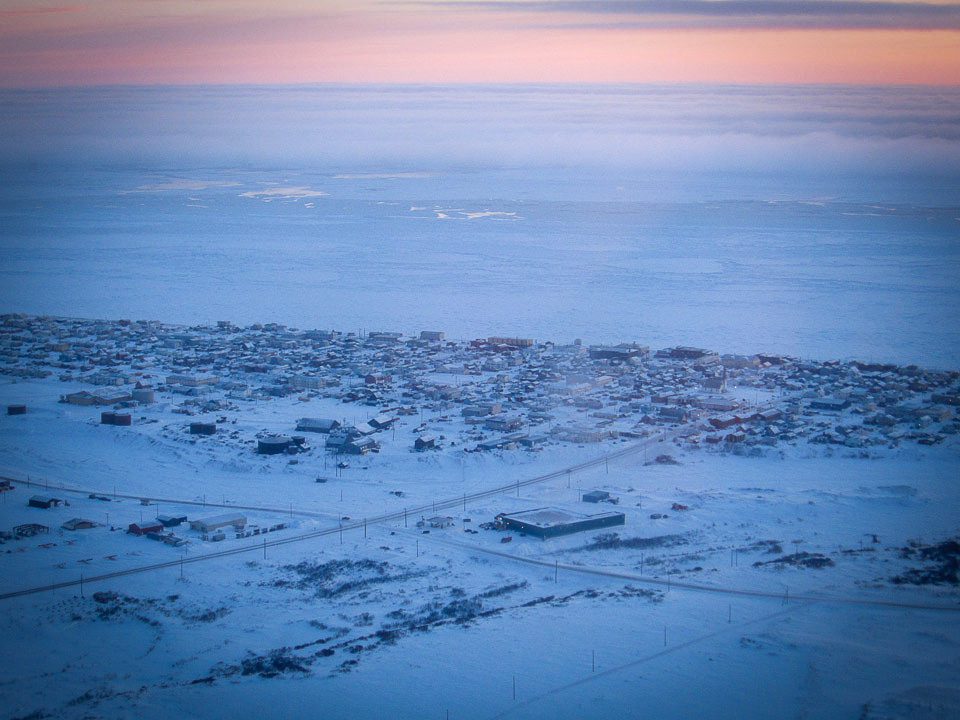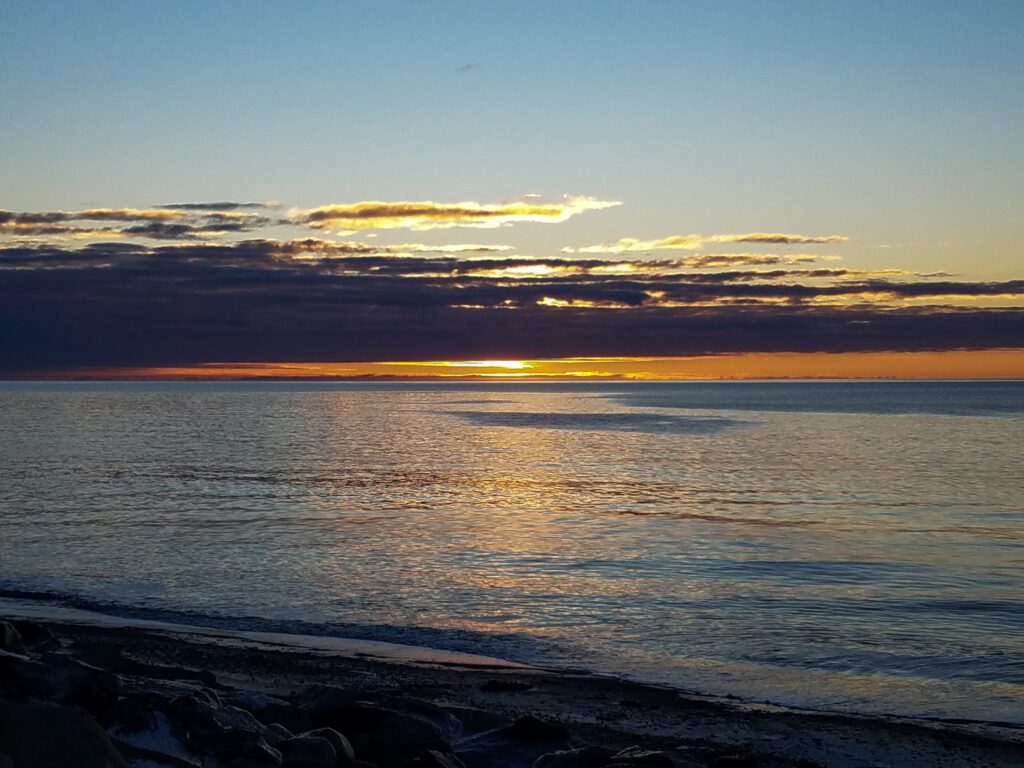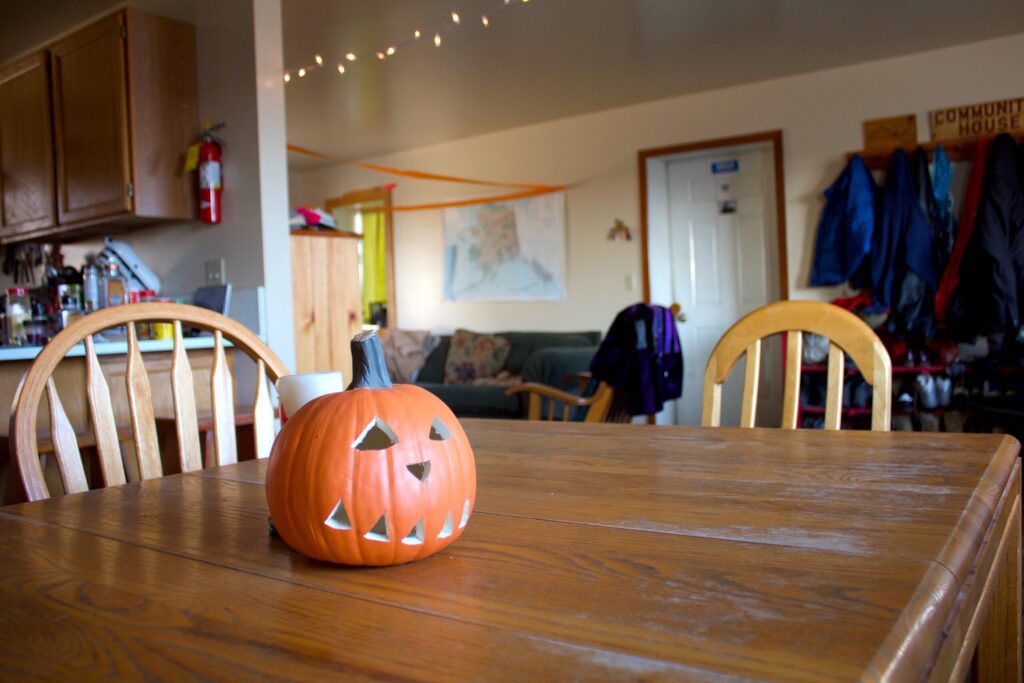
As of February 27, I have been in Alaska for six months and ten days. I’m more than halfway through my first term of service so I thought it was a good time to write a reflective blog post, to consider my experience so far, how I have grown, how being a KNOM volunteer has shifted my attitudes. But I couldn’t remember exactly how I used to be, so I decided to look through old blog posts. And in the midst of the pile, the rushed posts done mid-morning, the late photo diaries, I found a gem–an unpublished post from last October. I want to share it with you now because it captures a key part of my KNOM experience that still rings true, four months later:
“So, I’ve been in Nome for a month and a half now. But the fact that I’m in Alaska, just south of the Arctic Circle, usually slides down to the back of my mind, under new knowledge obtained at work, laundry to be done, dinner to be made—day-to-day concerns and day-to-day pleasures.
But last night, I returned to a book I had started reading a month and half ago in the lower 48. And the moment I picked up the book, I remembered where I was the last time I read it. I remembered sitting on my parents’ back porch in Reno, Nevada, the feel of the sun, the smell of the grass, the dry heat. I stared at the book cover and all of a sudden it really hit me: I’m 2500 miles away. I’m in western Alaska, where it snows in September.
KNOM is three blocks away from the Bering Sea. I can see it when I wake up. I can see it at work. There’s the town, and then there’s the sea, an unending, vast horizon of water. Some days the limitlessness gives me hope. Other days it sort of scares me. It’s hard to believe that in a few months, these waters will freeze, and I’ll be staring at an immense white sheet of ice.”
It’s almost March now. I can see the immense white sheet of ice from the window in my office everyday. But I’m disappointed in myself to say, even four months later, I often forget to appreciate it.
I usually forget I am in Nome, the strangeness of this place, the uniqueness of my situation in the context of anything I’ve ever experienced before. I wish I was better at being fully aware, but for the first six months, my mind has been working overtime to simply stay on top of things at work.
KNOM demands a lot from its volunteer Public Affairs Director. I’m a non-native, lower 48er, fresh out of college who came to Alaska having read one thin paperback about Alaska native cultures, and, after one afternoon of training, and a folder, I’m 100% responsible for a show tasked with preserving native elders’ knowledge of native culture for future generations. I could devote months, years, to learning about the culture, what questions to ask, to figuring out how to better use KNOM’s broadcasting power to help preserve a culture whose knowledge base is literally dying out. But I can’t devote too much time to Elder Voices, because I am also the features reporter. I have to meet deadlines and make content for our daily newscasts. I also host a call-in show, around once a month, about issues from self-help shows about overcoming grief, celebrating stories of overcoming addiction, to remembering elders. I also report on sled-dog races and the Iditarod. So, usually, I’m thinking about work, and working, and doing my best to improve while still doing what is expected of me.
In writing all this down, I can see I usually feel like I’m barely scraping by at work. But I can see I have already accomplished a great deal and have learned and grown. I was expected to pick up a lot, quickly, and run with it. And I have, mostly. I’ve also stumbled a few times. I have failed and missed deadlines and learned consequences of my action, to apologize, to try again. I am learning how to let go of my own impossibly high standards and do the job that needs to be done, and be okay with growing slowly. I am learning to accept that I am a beginner, and can only try my best, and be humble and ask for help. And I have been amazed and touched by the support from the other volunteers and staff members.
I also forget the strangeness of my situation, working as a volunteer reporter in Alaska, because I am in it, engaged, trying my best to maintain the well-being of the KNOM volunteer community. Living and working with the same four people has made me grow and shrink in ways I never imagined. I care about the other volunteers. Deeply. I treasure their friendship, the fun we have in our house, the silly things we do to keep each other’s spirits high in dark Alaskan winter thousands of miles from home. I have learned more about navigating differences, openness, and flexibility than I did in all of college. I am learning how to respect others’ needs without compromising my own, and recognizing being apart sometimes makes you a better community member.
But, every once in a while, between work and home, between the day-to-day concerns and day-to-day pleasures, I will experience a moment of awareness. I forget things I have to do at work and the role I’m supposed to play at home and simply exist. These moments of clarity often happen when I’m alone, revisiting the past, reading a book or thumbing through old journals, and brought face to face with evidence that something significant has changed in my life. These moments often happen when I’m outside, face to face with the Arctic climate. (The white hills, blue sky…I don’t know if it’s the lack of smog or what but the sunset and sunrises in Nome are insane. Everyday. It’s painfully beautiful up here.) The moments of appreciation and wonder at my situation have happened when I’m doing a good interview, when I’m engaged and the other person is too and we’re connected, having an intelligent, intimate conversation. But the clearest moments happen when I call a friend or family member back home. In the act of communicating, I suddenly become aware of how fantastically strange, challenging and transformative this experience is–and I am filled with joy and gratitude and a desire to do better, to take full advantage of my year (or two).










